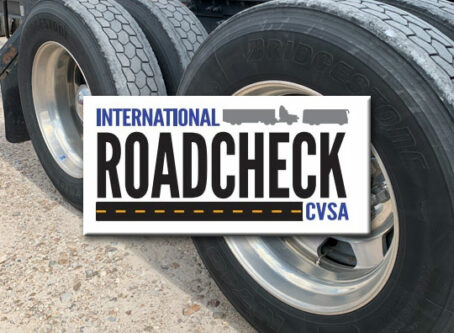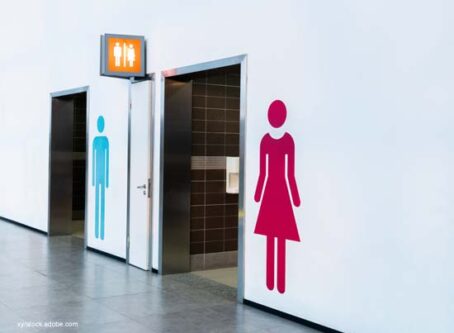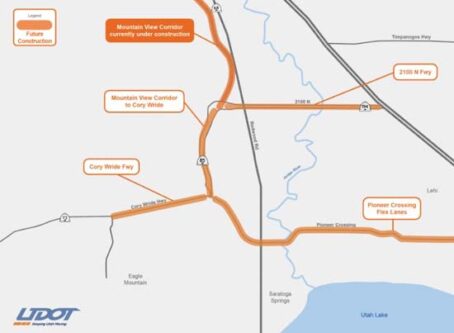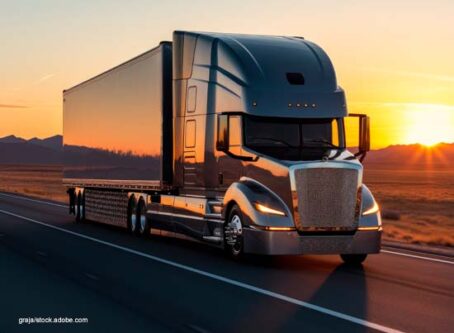Autonomous trucks are topic of state legislative efforts
Multiple state legislatures are taking action to address the use of autonomous trucks on public roadways.
Truck platooning technology advocates insist it saves fuel due to reduced aerodynamic drag, lessens traffic congestion and improves highway safety.
The Owner-Operator Independent Drivers Association recognizes that the rapid development of autonomous technology has potential. However, OOIDA has pointed out that the technology poses challenges as it relates to commercial vehicles and highway safety.
Kentucky
The Kentucky Legislature has acted to override a veto from Gov. Andy Beshear, a Democrat, to allow fully autonomous truck platooning in the state.
State law has authorized truck platooning. A requirement has been in place for a human driver to be behind the wheel of a trailing platoon vehicle.
For the second year in a row, Beshear vetoed legislation to authorize only the lead vehicle in a platoon to have a human driver behind the wheel. A requirement was included that a trailing vehicle be fully engaged.
In his veto message, Beshear cited safety concerns for his action. The governor said that “opening Kentucky’s highways and roads to fully autonomous vehicles should occur only after careful study and consideration and an extensive testing period with a licensed human being behind the wheel, which is what other states have done before passing such laws.”
A provision added to the bill, HB7, requires a human driver to be present in an automated truck exceeding 62,000 pounds. The requirement will be in place for the first two years.
The House voted 61-31 to override the veto. Senators followed suit on a 21-15 vote. The actions allow the bill to advance to the Secretary of State for enactment.
The Teamsters have described the autonomous trucks legislation as “dangerous.”
Before HB7 made its way through the statehouse, Teamsters Fred Zuckerman cautioned about allowing “California’s ‘Big Tech’” to write laws for Kentucky.
“Lawmakers need to pass legislation that’s by and for Kentucky residents,” Zuckerman stated.
California
In California, the Assembly Transportation Committee voted on Thursday, April 25 to advance a bill to rein in the use of autonomous trucks. The issue is not new to the Golden State.
State lawmakers acted a year ago to send to Gov. Gavin Newsom a bill to prohibit autonomous vehicle operation with a gross vehicle weight of at least 10,001 pounds for testing purposes, transporting goods or transporting passengers without a “human safety operator physically present” in the vehicle during operation.
Newsom, a Democrat, rejected the revision. At the time, he said it is “unnecessary” for the regulation and oversight of heavy-duty autonomous vehicle technology in the state. In his veto message, he referred to a 2012 state law that provides the DMV with authority to regulate the testing and deployment of autonomous vehicles on state roadways.
Undeterred, Assemblymember Cecilia Aguiar-Curry, D-Winters, brought the issue back to the statehouse this year.
She told the committee the bill does not prevent operation of autonomous trucks in the state.
“There is nothing about a human safety operator that prevents the autonomous trucking industry from testing and deploying autonomous vehicles anywhere in California,” Aguiar-Curry told the committee. “The only conceivable motivation for rushing forward without a monitor in the cab is to increase profits at the risk of public safety and the livelihoods of our trained, expert trucking workforce.”
“All this bill does is include the legislative branch in a more transparent process as the final decision is made to remove humans from trucking in our state,” she added.
Committee Chair Lori Wilson, D-Suisun City, said she supports the bill.
“The potential carnage that can be caused by an 80,000-pound truck is alarming. Our constituents expect that its government will do everything it can to keep people safe,” she said. “I believe we as a legislature should require a human safety operator in an automated truck until autonomous vehicle companies and the regulators have instilled confidence in these vehicles’ ability to operate safer than a human operator.”
Additionally, Aguiar-Curry questioned supply chain concerns.
“Studies by MIT have shown that there is not a trucker shortage, but there is a chronic under-utilization of American truck drivers,” she said.
Aguiar-Curry added that while many truck drivers joined the workforce to help alleviate the supply chain crisis, “they are struggling to make ends meet because they cannot find work that pays enough to cover their costs.”
“Truck diving is one of the most common jobs, and this bill helps the transition to that workforce,” she said.
The autonomous truck bill, AB2286, next heads to the Assembly Appropriations Committee. If approved there without changes, it would move to the Assembly floor.
South Dakota
South Dakota has enacted a new law that is touted to boost intrastate freight.
Previously HB1095, the new law establishes a regulatory framework to allow automated vehicles that include commercial vehicles to operate on state roads without a human operator behind the wheel. Municipalities are prohibited from passing laws to govern affected vehicles.
Specific to large trucks, fully autonomous commercial vehicles are expected to follow state laws governing operation, except that “any provision that reasonably applies only to a human driver does not apply to a vehicle operating with the automated driving system engaged.” LL
More Land Line coverage of state news is available.









